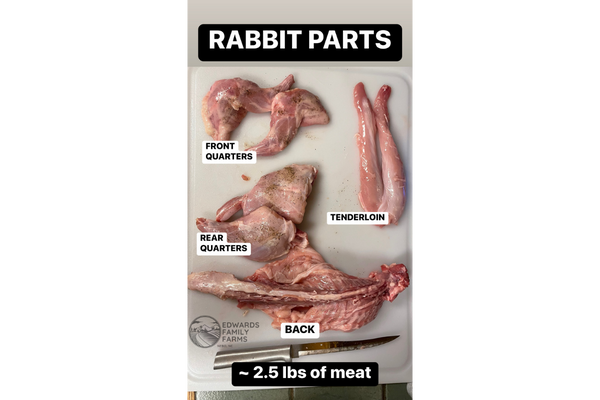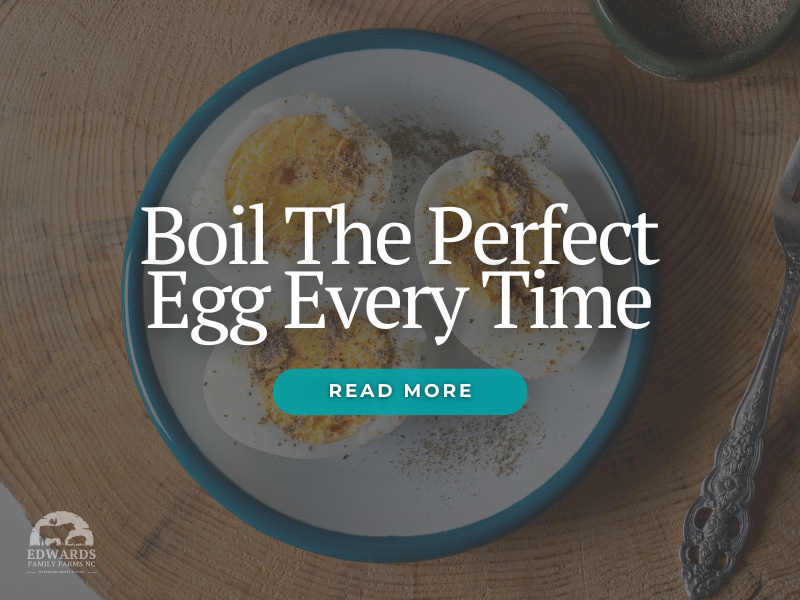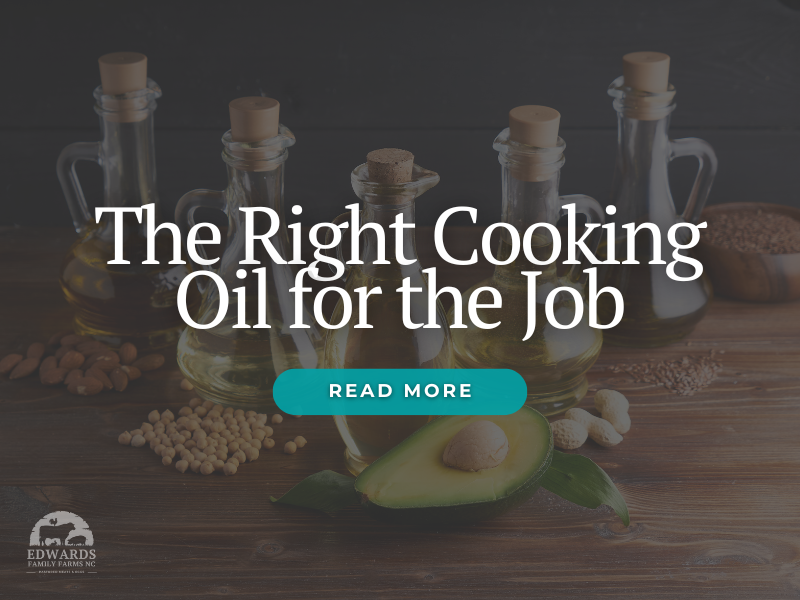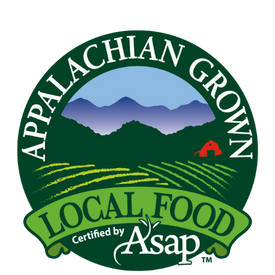Rabbit As A Sustainable Meat Source
posted on
March 1, 2023
In the world of sustainable homesteading, one often seeks out efficient and eco-friendly practices to produce food. While traditional livestock like chickens and goats are popular choices, there's a fluffy contender that deserves a closer look – rabbits.
These small, unassuming creatures offer a myriad of benefits when it comes to raising them for meat on your homestead. Let's explore why rabbits are a fantastic and sustainable meat source that can revolutionize your approach to self-sufficiency.
Efficiency in Space and Feed
One of the most significant advantages of raising rabbits is their incredible efficiency in space and feed conversion. Unlike larger livestock that require substantial grazing areas and large quantities of feed, rabbits can thrive in relatively small spaces and consume minimal resources. Their ability to convert feed into meat is unmatched, making them an ideal choice for homesteaders with limited land.
Rapid Reproduction
Rabbits are renowned for their prolific breeding habits. A single pair of rabbits can produce multiple litters in a year, allowing for a consistent and bountiful meat supply. This rapid reproduction rate ensures that you can maintain a sustainable and self-replenishing source of protein for your family without the need for continuous investment.
Lean and Nutrient-Rich Meat
Rabbit meat is not only delicious but also offers a lean and nutrient-rich alternative to more conventional meats. It is low in fat, high in protein, and provides essential vitamins and minerals. For health-conscious homesteaders, rabbit meat becomes an excellent choice that contributes to a well-rounded and nutritious diet.
Reduced Environmental Impact
As opposed to larger livestock, rabbits have a significantly lower environmental footprint. They produce minimal methane emissions, require less water, and generate less waste. This makes them an environmentally friendly option for those striving to reduce their impact on the planet while still enjoying the benefits of home-raised meat.
Versatility in Housing
Rabbits are adaptable and can thrive in various housing conditions. Whether you choose to keep them in traditional hutches, colony-style setups, or in mobile pens that allow for rotational grazing, rabbits are versatile and can be integrated into your homestead with ease.
Utilizing By-Products
Raising rabbits isn't just about the meat; it's also about making the most of every part of the animal. Rabbit manure is an exceptional fertilizer for gardens, providing a nutrient-rich and balanced source of organic matter. This closed-loop system ensures that every aspect of your rabbit-raising venture contributes positively to your homestead's overall sustainability.
In the quest for sustainable and self-sufficient living, rabbits emerge as a remarkable solution for those seeking a reliable meat source. Their efficiency, rapid reproduction, lean meat, and minimal environmental impact make them an ideal choice for homesteaders looking to make a positive impact on both their plates and the planet. So, hop into the world of rabbit husbandry and discover the joys of raising these furry friends for a more sustainable and fulfilling homesteading experience.
Fun facts about meat rabbits:
- Female rabbits have a gestation period of 31-33 days. This means that a rabbit is only pregnant for one month!
- Depending on the breed, a female rabbit (doe) can have upwards of 12-16 kits (baby rabbits) in one litter.
- Kits can be harvested as early as 8 weeks old. Personally, we prefer harvesting at 10-12 weeks old for that extra pound of meat.
- Rabbits are very efficient feeders. Only about 4 pounds of food is needed to make 1 pound of meat.
- A pair of meat rabbits can yield an average of 112 pounds of meat a year!
- Rabbit meat is all white, lean and has a low calorie value.
- Rabbit is more filling and easier to digest than other meats might be.
- Rabbit has a higher meat to bone ratio than chicken meaning there is less bone and more edible meat on the same size carcass. (But we don’t suggest not eating chicken)
- Rabbit contains less cholesterol than poultry and has a very low % of fat.
- Rabbit meat contains a high percentage of easily digestible protein.
- Not to mention, rabbit meat is a staple for dogs on a raw diet for all of the reasons listed above.

Most common meat rabbit breeds:
- New Zealand (we raise these)
- Californian
- Rex (we raise these)
- Flemish Giant
- Silver Fox





